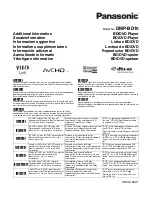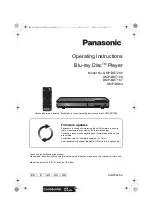
Chapter 10. Recording Settings
80
10.10. Clipping Light
Causes the backlight to flash on when clipping has been detected.
Options:
Off
,
Main unit only
,
Main and remote unit
,
Remote unit only
.
10.11. Trigger
When you record a source you often are only interested in the sound and not the silence
in between. The recording trigger provides you with a tool to automatically distinguish
between sound and silence and record the sound only. Unfortunately it is not very easy
to make this distinction between silence and sound because you hardly ever encounter
real silence. There always are background noises. What is considered as background
noise depends on the situation. For example during a lecture the very low noise of
rustling paper might be considered as background noise. During a rock concert the
murmur of the audience might be considered background noise which is much louder
compared to rustling paper. Also the duration of the signal matters. When you record
speech you want to record every syllable. When you record live music you may not be
interested in that chord the guitarist plays for two minutes before the show to verify his
amp is turned on. The trigger features numerous parameters to adapt its behaviour to
the desired situation.
Trigger.
This parameter specifies the trigger mode. When set to
Off
the recording must
be started manually and apart from the Prerecord time no other parameter has
any effect.
Once
will have the trigger start one recording only; after the recording
has finished the input signal will not start another recording.
Repeat
will have
the trigger start multiple recordings.
Trigtype.
Add description of Trigtype
Options:
Stop
,
Pause
,
New File
.
Prerecord Time.
This specifies the time that is included into the recording before the
trigger event occurs. This is very useful if you record a signal that fades in. Usually
you want to set the prerecord time greater than or equal to the start duration. That
ensures that you record the entire sound. Strictly speaking the prerecord time is
not a special parameter of the trigger. It is available during normal recordings too.
Start Above.
The start threshold defines the minimal volume a sound must have to start
the recording. It is displayed numerically in the line “Start Above”. Note that the
unit of the threshold depends on the settings of the peak meter. (i.e. When the
peak meter displays dB you can adjust the level in dB and when the peak meter
is set to linear the threshold is displayed as percentage.) In the peak meter at the
bottom of the screen the start threshold is displayed graphically by a little triangle
pointing to the right. There are two special values. The value
Off
turns the start
condition off. With this setting you have to start the recording manually and the
trigger only stops the recording according to the stop condition. The setting
-inf
sets the trigger to the absolute minimum. This setting only makes sense when you
The Rockbox manual
(version 3.14)
Sansa Clip v2
















































